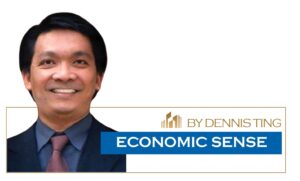The pronouncements of President Ferdinand R. Marcos, Jr’s adviser on poverty alleviation Secretary Larry Gadon went viral over the weekend.
Sec. Gadon was quoted as saying that the economic difficulties the country is experiencing at present are just “haka haka” (imaginary) adding that many Filipinos are going to shopping malls, eating in fastfood restaurants, and buying cars.
While some may agree that there is an increase in the number of people in shopping malls and fastfood restaurants as well as an uptick in the number of cars on the roads, we do not consider these as barometers of decreasing poverty or an improvement of quality of life.
We may be led to believe that the economy is doing fine just by these indicators not realizing that only a small segment of the population is reaping the fruits of a growing economy.
To better gauge public sentiment on the matter, let us check the recent Social Weather Stations (SWS) survey on poverty.
Nearly half, or 46% of Filipinos, consider their families as poor in March 2024. This translates to 12.9 million Filipino families, according to SWS.
It doesn’t take a genius to realize the gravity of the situation when more than twelve million Filipinos are saying their families are poor.
The polling firm further pointed out that the percentage of self-rated poor Filipino families in March 2024 was highest in the Visayas at 64%, followed by Mindanao at 56%, Balance Luzon at 38% and Metro Manila at 33%.
Metro Manila, as we can see, has the lowest self-rated poverty. This may well explain the proliferation of shopping malls, fastfood chains, and cars on the road the country’s anti-poverty czar cited.
Metro Manila, however, is just a small slice of the geographical pie that is the Philippines.
Growth must be rapid, sustained and inclusive felt across society. To realize this, the Marcos Jr Administration vows to bring down poverty incidence rate to single digit by 2028.
There is a lot of catching up to reduce poverty, which stands at 22.4% in the first half of
2023, to 9% by the end of the President’s term.
For such a lofty objective to be achieved requires hard work from our country’s political leadership and unwavering support from our people.
Government cannot do this alone. Public trust and citizen support are essential to the success of any government program.
—
Dennis Ting is a former director at the Department of Budget and Management.




